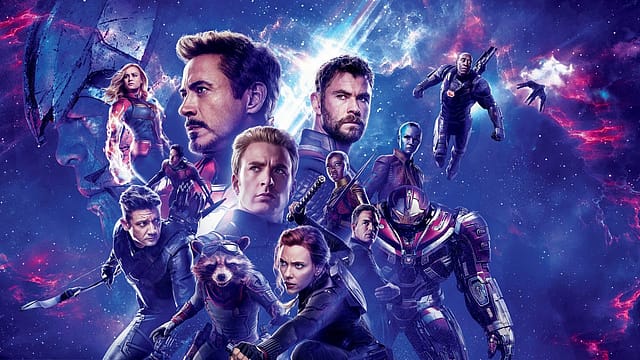Avengers: Endgame Movie Review

Time is relative for our ‘Avengers bhakts'. The movie is a little over 3 hours long, but every ‘whooo’ at the entrance of a Superhero, or each nod to a previous event in the franchise, marks time synchronously, and keeps you in the loop. You usually know, with relative certainty, whether you are going forward or backwards in the space/time continuum.
An idea by Scott Lang/Ant-Man (Paul Rudd), who turns out to be the real game changer in the movie, conveniently reverses time flow. In the previous film, ‘Infinity War’, Thanos destroyed half of all life on earth, so Lang suggests that the Avengers go back before that apocalyptic event, to try and rectify things.
There are two funny scenes in the first half, a slow paced and self reflective fraction, before the big bangs for your big bucks in the second. One is when the test runs for time travel in the quantum realm takes place. The technology is not perfect, so mistakes are made. Scott Lang comes back to the present, in different avatars, to guffaws from the Avengers. He is, alternatively, a young boy, a cute little baby boy, and an old man. They have got to work this thing more precisely, they realise, or all of them are going to be lost in time.
AIming High
20 Feb 2026 - Vol 04 | Issue 59
India joins the Artificial Intelligence revolution with gusto
The other scene is when Bruce Banner/ Hulk (Mark Ruffalo) is discussing the problems in the time travel system with Lang/Ant-Man, and, suddenly, young fans come by for the big man's autograph. Modestly, he suggests that the kids get Ant-Man's autograph too, because he is the superhero of the moment. Unfortunately, the suggestion is not met with enthusiasm, and the autograph hunters seem hesitant. It is a nice little take-off on the whimsical nature of celebrity culture; and the carefully calibrated hierarchy within.
But what is truly amazing about this movie, and its appeal, is the emotional connect it receives outside of the United States. What is the process of identification involved? Let's look at this. Half of humankind is wiped out by Thanos (Josh Brolin), and all you see are deserted Americans cities, American graveyards and American survivors. It is almost as if to suggest that similar tragedies in cities across the world do not matter. And yet, an audience in India cheers for fictional characters of Marvel Comics, in which universe the reference to Indian people and culture is next to zilch. In point of fact, most of this wildly cheering viewership across the world would be hard put to identify the central figures from Greek, Egyptian or Hindu mythology.
So the first attribute of the American comic strip mythology is to dumb down all history and science. The second is to insist on conformity in perspective on each characters’s objectives and values. The result is a totally self absorbed immersion into these features by watchers of this cinema across the world. Surely, it is a form of self inflicted cultural neocolonialism - we identify with faux suffering in ‘Infinity War’, when fifty percent of the population of the planet is snuffed out, and then enjoy ourselves with a faux celebration when that tragedy is miraculously ‘rectified’ in ‘Endgame’.
At the end of this comic strip movie, the lesson learnt is that life is a video game that turns out differently each time you play it. In order to rectify a bad ending, all you have to do is to enter the game a little before the climax, and take a different turn from the one you took the last time round. ‘Avengers: Endgame’ has some humour in the first half, and a lot of sound and fury in the second, but is, ultimately, very predictable as a narrative.
